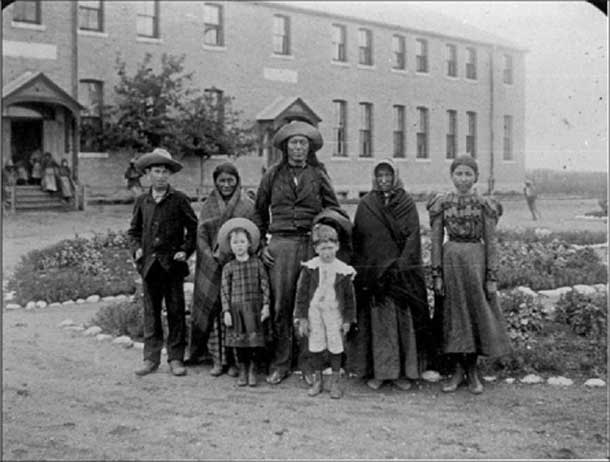
Taking care: We recognize that this statement comes at a time that is difficult for many and that our efforts to honour Survivors and families may act as an unwelcome reminder to those who have suffered hardships through generations of government policies that were harmful to Indigenous Peoples.
A support line is available to former students of residential schools and their families. The line provides emotional and crisis referral services, as well as information about other mental wellness supports.
Please call the National Indian Residential Schools Crisis Line at 1-866-925-4419 to speak with an experienced counsellor.
In addition, the Hope for Wellness Help Line provides immediate, toll-free telephone and online chat-based support and crisis intervention to all Indigenous Peoples in Canada. This service is available 24/7 in English and French, and upon request in Cree, Ojibway and Inuktitut. Trained counsellors are available by phone at 1-855-242-3310 or by online chat at hopeforwellness.ca.
OTTAWA, ON – The Honourable Carolyn Bennett, Minister of Crown–Indigenous Relations; the Honourable Jonathan Wilkinson, Minister of Environment and Climate Change and Minister responsible for Parks Canada; the Honourable David Lametti, Minister of Justice and Attorney General of Canada; the Honourable Steven Guilbeault, Minister of Canadian Heritage; the Honourable Marc Miller, Minister of Indigenous Services; and the Honourable Daniel Vandal, Minister of Northern Affairs, today issued the following statement:
“Today marks the inaugural National Day for Truth and Reconciliation, a day of commemoration to honour the lost children and Survivors of residential schools, their families and communities. All Canadians have the opportunity to come together to ensure that we commemorate the history and recognize the harmful legacy of residential schools, and that this remains an essential part of reconciliation. It is a time for reflection and a commitment to reconciliation and to continuing the work ahead.
Residential schools are a shameful part of damaging racist and colonial policies that removed First Nations, Inuit, and Métis children from their communities, families, languages and cultures. The Truth and Reconciliation Commission (TRC) was established to find the truth of what happened at residential schools in Canada. Their Final Report included 94 Calls to Action that are an appeal to mobilize all levels of government, organizations and individuals to make concrete changes in society. The National Day for Truth and Reconciliation was created in response to the TRC’s Call to Action number 80.
The National Day for Truth and Reconciliation builds on the momentum created by Orange Shirt Day, the grassroots, Indigenous movement and annual event inspired by the experience of Phyllis Webstad of the Stswecem’c Xgat’tem First Nation. The story of her new orange shirt being taken away on her first day at St. Joseph’s Mission Residential School has become a powerful symbol of resilience in response to injustice. Orange Shirt Day and the National Day for Truth and Reconciliation take place on September 30 as it was the time of year when children were stolen from their homes.
Implementing the TRC’s Calls to Action is a vital part of the Government of Canada’s work to advance reconciliation. While progress has been made on the TRC’s Calls to Action for which the federal government is responsible, there is more work to do, and the Government of Canada recommits to this effort.
The location of unmarked graves at former residential schools across the country this past year shocked not just every Canadian, but the world. Once you know the truth, you cannot unknow it. All Canadians are better able to feel and understand what it must have been like to have their children taken against their will, some never to return, and all to witness that the lives of those who returned had been forever changed—and harmed.
We must never forget those innocent children who never returned home, their families and communities who were waiting for them and those who continue to suffer from intergenerational trauma. Volume Four of the TRC’s Final Report focused on the Missing Children and Unknown Burial Information. This is comprehensive documentation of what was known by so many Indigenous children. Canadians interested in learning more about the Missing Children and Unmarked Burials Project are encouraged to read it and the other volumes.
National recognition of this day of solemn commemoration marks another step toward recognizing the wrongs committed by the residential school policy, acknowledging the ongoing impacts and reflecting on actions to be taken each day on the path of reconciliation. It is an opportunity for all Canadians to further our understanding of and deepen our respect for Indigenous ways of life. It is also an opportunity for us all to stand with Indigenous Peoples; reaffirm our support for those who are affected, recognize the intergenerational trauma of residential schools that continues to have a profound effect on Survivors, their families and communities; and recognize our shared responsibility for healing.”
